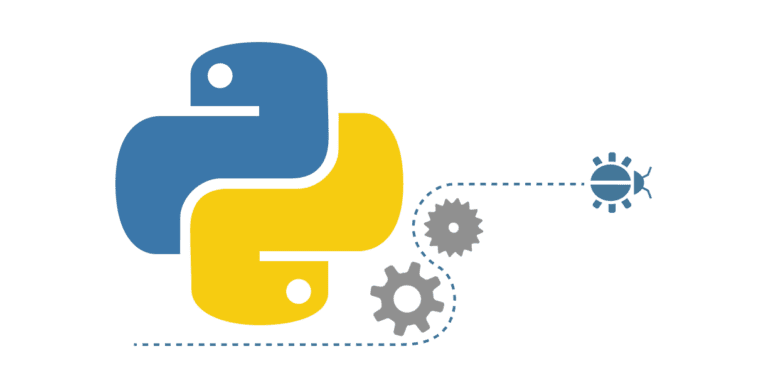20 Reasons To Learn Python

Python has emerged as a cornerstone of modern programming, renowned for its versatility, readability, and vast ecosystem. From web development and data analysis to artificial intelligence and automation, Python has become the language of choice for developers across industries.
In this article, we’ll explore 20 compelling reasons why Python stands out as a powerhouse in the world of programming.
1. Simplicity and Readability
Python’s elegant syntax and intuitive design make it accessible to beginners and enjoyable for experienced programmers. Its clear and concise code structure promotes readability and reduces the time and effort required for development and maintenance.
2. Versatility
Python’s versatility knows no bounds, with support for multiple programming paradigms, including procedural, object-oriented, and functional programming. Whether you’re building a web application, scripting tasks, or diving into data science, Python offers tools and frameworks to meet your needs.
3. Extensive Library Ecosystem
Python boasts a vast ecosystem of libraries and frameworks that cover a wide range of domains and use cases. From Django and Flask for web development to NumPy and Pandas for data analysis, Python’s rich collection of libraries empowers developers to tackle complex problems with ease.
4. Community Support
Python’s thriving community is a testament to its popularity and inclusivity. Whether you’re seeking guidance, troubleshooting a problem, or collaborating on a project, you’ll find a welcoming community of developers, forums, and resources to support your journey.
5. Cross-Platform Compatibility
Python runs seamlessly on all major operating systems, including Windows, macOS, and Linux, ensuring compatibility across different platforms. This portability makes Python an ideal choice for developing cross-platform applications that reach a wider audience.
6. Scalability
Python’s scalability is evidenced by its use in projects of all sizes and complexities, from small scripts to enterprise-level applications. Companies like Google, Facebook, and Netflix rely on Python to power their platforms and services, demonstrating its scalability and reliability at scale.
7. Data Science and Machine Learning
Python’s dominance in data science and machine learning is undeniable, thanks to its rich ecosystem of libraries and tools, such as TensorFlow, PyTorch, and scikit-learn. Its simplicity and flexibility enable researchers and practitioners to explore, analyze, and model data with ease.
8. Rapid Prototyping
Python’s interpreted nature and dynamic typing facilitate rapid prototyping and experimentation, allowing developers to iterate quickly and validate ideas in real-time. This agility is invaluable in fast-paced environments where speed and flexibility are paramount.
9. Job Opportunities
The growing demand for Python developers has created abundant job opportunities across industries, from tech startups to established enterprises. Proficiency in Python opens doors to diverse career paths and lucrative salaries, making it a valuable skill in today’s job market.
10. Future-Proofing
Python’s adaptability and relevance ensure its place as a cornerstone of the programming landscape for years to come. Its continued growth and innovation in emerging fields such as artificial intelligence, cybersecurity, and blockchain position Python as a future-proof investment for developers and businesses alike.
11. Scripting and Automation
Python’s simplicity and versatility make it an ideal choice for scripting and automation tasks. Whether you’re automating system administration, managing workflows, or scripting repetitive tasks, Python’s powerful features and third-party libraries simplify the process.
12. Community Projects and Contributions
Python’s open-source ethos fosters a culture of collaboration and contribution, with thousands of community-driven projects and initiatives available for developers to explore and contribute to. From beginner-friendly tutorials to advanced frameworks, Python’s vibrant ecosystem is driven by the collective effort of its community members.
13. Integration with Other Languages
Python’s seamless integration with other languages, such as C/C++, Java, and .NET, allows developers to leverage existing codebases and libraries to enhance their projects. Whether you’re building Python extensions in C or calling Python functions from Java, Python’s interoperability opens up a world of possibilities for developers.
14. GUI Development
Python offers several GUI development frameworks, such as Tkinter, PyQt, and Kivy, that enable developers to create rich and interactive desktop applications with ease. Its simplicity and cross-platform compatibility make Python a popular choice for building graphical user interfaces for a wide range of applications.
15. Educational Resources
Python’s beginner-friendly syntax and extensive educational resources make it an ideal language for learning programming. From online tutorials and interactive courses to books and community meetups, Python offers a wealth of resources for aspiring programmers of all ages and skill levels.
16. Web Development
Python’s web development frameworks, such as Django and Flask, provide developers with the tools and conventions needed to build scalable and secure web applications. Its clean and pragmatic design promotes rapid development and maintainability, making Python a popular choice for web development projects of all sizes.
17. Testing and Debugging
Python’s built-in testing and debugging tools, such as unittest and pdb, streamline the process of writing and debugging code. Its support for testing frameworks and libraries, such as pytest and doctest, encourages developers to adopt best practices and write reliable and maintainable code.
18. Community Events and Conferences
Python’s vibrant community organizes a variety of events and conferences around the world, providing opportunities for developers to network, learn, and share their knowledge and experiences. From local meetups and workshops to international conferences like PyCon, Python offers a wealth of opportunities for professional growth and community engagement.
19. Support for Multiple Platforms
Python’s support for multiple platforms, including desktop, web, mobile, and embedded systems, makes it a versatile choice for a wide range of projects and applications. Whether you’re developing software for desktop computers, smartphones, or IoT devices, Python offers the tools and frameworks to bring your ideas to life.
20. Accessibility and Inclusivity
Python’s commitment to accessibility and inclusivity ensures that programming is accessible to everyone, regardless of background or experience. Its beginner-friendly syntax, extensive documentation, and supportive community create a welcoming environment for developers of all levels, fostering diversity and inclusion within the programming community.
Python’s rise to prominence is a testament to its versatility, simplicity, and power. Whether you’re a seasoned developer or a newcomer to programming, Python offers a wealth of opportunities and possibilities for building a wide range of projects and applications. As we continue to unlock the full potential of Python, its impact on the world of technology and beyond is bound to be profound and enduring.




Post Comment